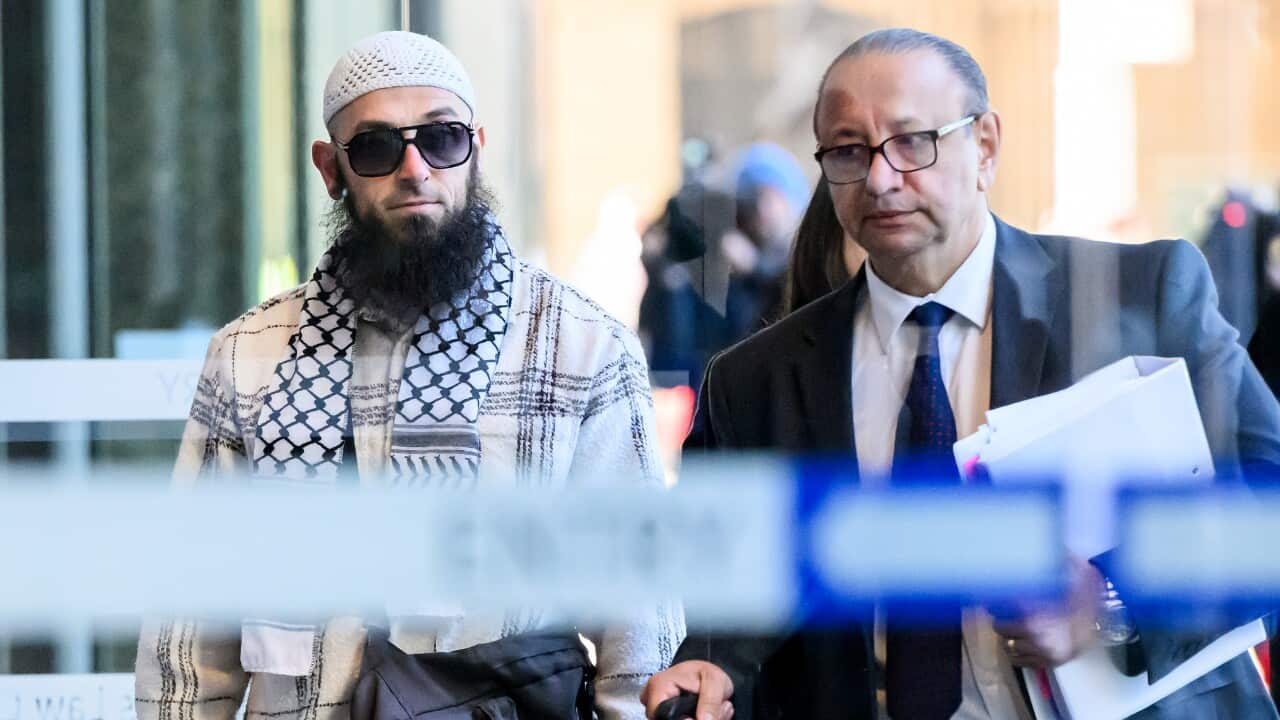A Sydney-based Islamic preacher made "dehumanising" and "threatening" remarks towards Jewish people, a federal court judge has been told, in what is alleged to be a breach of Australia's Racial Discrimination Act.
The case in the Federal Court was brought by the nation's peak Jewish body — the Executive Council of Australian Jewry (ECAJ) — and centres on a series of allegedly inflammatory speeches made by preacher Wissam Haddad in the wake of Hamas' October 7 2023 attack on Israel.
Haddad denies the breach and his legal team say they will defend his comments as free speech, arguing his remarks were made in a political and religious context within broader criticism of Israel's war in Gaza, and what Haddad has described as a "Muslim genocide in Gaza".
Peter Wertheim, the ECAJ co-CEO, took the stand on the opening of the four-day hearing on Tuesday, saying the remarks Haddad made in a series of speeches were "dehumanising" of Jewish people.
He said Haddad made "derogatory generalisations, calling Jews vile, treacherous people, calling them rats".
"Dehumanising language about Jews is antisemitic," Wertheim said.
"I think that would be experienced by most Jews as dehumanising."

In opening remarks, Peter Braham SC, the counsel representing Wertheim and the ECAJ, took the court through excerpts of five speeches or lectures made by Haddad, also known publicly as Abu Ousayd, at the Al Madina Dawah Centre in Bankstown, Sydney in November 2023.
Braham told the court Haddad’s speeches contained "antisemitic tropes" about Jewish people, that "they're mischievous, they're a vile people, that they're treacherous, and that they control the media and banks".
In speeches played to the court, Haddad was heard to refer to Islamic religious texts and repeat a passage saying: "There is a Jew behind me, come and kill him".
Of this, Braham said: "It’s threatening, it’s a call to arms."
Wertheim’s legal team argue Haddad’s comments breach Section 18C of the Racial Discrimination Act and must prove Haddad’s acts were reasonably likely to "offend, insult, humiliate or intimidate" Jewish people because of their race or ethnicity, and that the acts were done "otherwise than in private".
Braham argued Haddad’s acts were public as he spoke to a congregation of at least 400 people and was being filmed, with the videos later posted online.
He also referred to Haddad’s own acknowledgement that his allegedly inflammatory content was being reported in the Australian media in November 2023.
"Today, I’m going to be a masjid [mosque] shock jock," Haddad said in one speech, in an extract read out by Braham in court.
Braham argued this makes it "patently clear [Haddad] knows he’s being listened to by the mainstream media, he knows he’s being recorded".
"[He is] plainly acknowledging that he is being listened to, that he is in a conversation with the mainstream media," Braham said, arguing that by doing so Haddad’s acts of making remarks about Jewish people were not private.

'Not about antisemitism', says defence
Andrew Boe, the counsel representing Haddad, told the court in opening remarks that this was "not a case about antisemitism", adding that Justice Angus Steward should not take a "narrow interpretation" of the law.
Boe argued the Racial Discrimination Act "must leave room for the legitimate participation in robust discourse … even and especially in a charged environment" such as that which followed the 7 October Hamas attack and Israel's subsequent war in Gaza.
Boe told the court videos played to the court and experts of Haddad’s speeches read to the court by Braham were presented in a "piecemeal way".
Defence raises Hanson v Faruqi
Boe referenced the Federal Court’s recent decision in One Nation leader Pauline Hanson v Greens senator Mehreen Faruqi in finding a tweet by Hanson amounted to racial discrimination. However, he said there were key differences between that case and the current matter.
A key difference, Boe said, was that Hanson’s statements were overtly public, having been posted on X (formerly Twitter), and her comments were seen by people "unguided by any other source".
In contrast, Boe said, Haddad was speaking to a "Muslim audience" and Jewish Australians only saw Haddad’s remarks through the mainstream media, or on a social media outlet "dedicated to publishing antisemitic content".
Haddad is expected to give evidence and be cross-examined on Wednesday.
The trial is scheduled to run until Friday.
For the latest from SBS News, download our app and subscribe to our newsletter.

